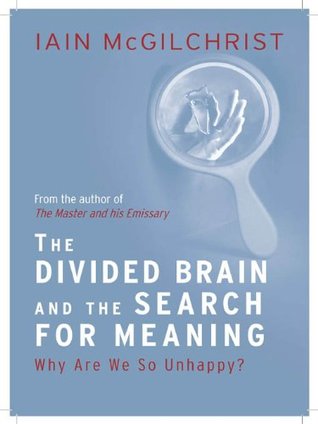More on this book
Community
Kindle Notes & Highlights
Gradually, with unfolding research, it became obvious that both hemispheres seemed to contribute to language, both to visuospatial imagery: both were involved in reason and both in emotion, which were inextricably involved with one another. In fact it didn't matter what it was our brains were engaged in doing, both hemispheres were in it
This is one of his prime theses. That the earlier sensationalist (now embedded in the zeitgeist) position that LHS does X and RHS does Y is found to be wrong.
There are, of course, only two possible models: seeing it as part of a machine or as part of a person. So we had a 50 per cent chance of getting it right. But we managed to make the wrong choice. Because if instead we had seen it as part of a person, we would immediately have noticed that we were asking the wrong question. Instead of asking, as of a machine, what it does – does it ‘do’ reason, emotion, language, imagery? – we should have asked – as of a person – what's he or she like?
Really nice wakeup call that much of the language we use and way we describe/critique things is mechanistic (from the industrial revolution) or computer-ish (from the explosion in last 40 years).
For example:
Mechanistic: "He's a total machine", "She's a great operator", "crushing it", "in the zone" (not sure about this one)
Computer: "I was just following the process", "swipe left", "I couldn't process what he was saying"
We may find that more naturalistic embodied expressions like "I tried to grasp what she was saying", "they melted together" may be lost and the empathy with it.


